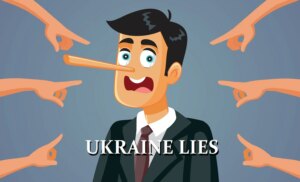Understanding the Geopolitical Landscape: Is Russia Really an Empire in the Making?
As the world grapples with increasingly complex geopolitical tensions, the narrative surrounding Russia’s ambitions often shifts between portraying it as a formidable empire poised for expansion and a weakened state on the brink of collapse. Recently, Kyrylo Budanov, Ukraine’s intelligence chief, stirred headlines by asserting that "Russia sees itself as an empire," suggesting that the historical context is essential in understanding the current conflict.
The Empire Argument
Budanov’s remarks included a provocative reference to the Warsaw Pact countries—Poland, the Czech Republic, Hungary, and Bulgaria—characterizing them as the basic building blocks for Russia’s notion of an empire. This ancient yearning echoes throughout Russia’s history, with a tendency to reclaim ideological and territorial claims that resonate through centuries. However, it is crucial to critically analyze whether such ambitions are realistic or exaggerated.
The Duality of Strength: Russian Might vs. NATO’s Response
The narrative surrounding Russia’s military capabilities remains polarized. On one hand, some analysts assert that NATO could effectively dismantle Russian forces within days, while others emphasize a more cautious approach, indicating that any miscalculation in underestimating Russian resolve could unleash dire consequences. This contradiction raises an essential question: which narrative reflects the true power dynamic?
At Extreme Investor Network, we understand that analytical depth is vital in these discussions. It is not enough to rely on headlines or propaganda; we stress the importance of assessing multiple sources and expert analyses. Contrary to emotionally charged statements, military strength should be evaluated by both qualitative and quantitative measures, including technology, troop morale, and logistics.
The Proliferation of Misinformation
The media landscape complicates matters further. History shows us that sensationalism is often the primary driver of war narratives—something reminiscent of Joseph Pulitzer’s tactics during the Spanish-American War. The parallels are striking, as modern-day reports frequently capitalize on fears of an impending Russian hegemony or the potential for total collapse.
It’s essential to discern the difference between genuine intelligence analysis and sensationalized journalism. The prevailing theme suggests that when "fake news" proliferates, it jeopardizes our understanding of complex geopolitical realities. At Extreme Investor Network, we filter through this noise and emphasize the importance of critical thinking and informed discourse as prerequisites for understanding the actual stakes involved.
The Human Aspect of Warfare
Beyond political maneuvers lies the devastating human cost of war. As highlighted by the plight of millions of Ukrainians who have fled their homes, the realities of conflict are not just numbers or military jargon. The responsibility of society extends to understanding these crises beyond headlines—something that many journalists fail to convey.
The ongoing conflict serves as a reminder that geopolitical decisions have far-reaching consequences, impacting real lives in profound ways. As we consider the narratives pushed by various parties, it becomes increasingly vital to reverse-engineer the motivations behind these stories and scrutinize their validity.
A Future of Uncertainty
From the perspective of forecasting economic trends and geopolitical outcomes, we recognize that the future remains uncertain. The computerized models we deploy at Extreme Investor Network suggest that Ukraine has become emblematic of a broader struggle—one that goes far beyond territorial disputes to include economic stability and the prospects for peace in Europe.
In navigating this landscape, we are not merely passive observers. We encourage our readers to engage in thoughtful dialogue, challenge prevailing narratives, and consider the implications of ongoing conflicts as they affect economic and social dynamics globally.
Conclusion
As the geopolitical chessboard evolves, an empire’s revival—or its collapse—remains wedged between myth and reality. It is essential to engage with these narratives critically, separating truth from exaggeration and seeking a more profound understanding of what is truly at stake. At Extreme Investor Network, we stand committed to delivering insights that enable our readers to evaluate these complex issues through a discerning lens, fostering informed investment strategies and sustainable discussions.
By staying informed and critically engaged, we can better navigate these turbulent waters together. Join us as we continue to delve into the ever-changing political and economic narratives that shape our world.

